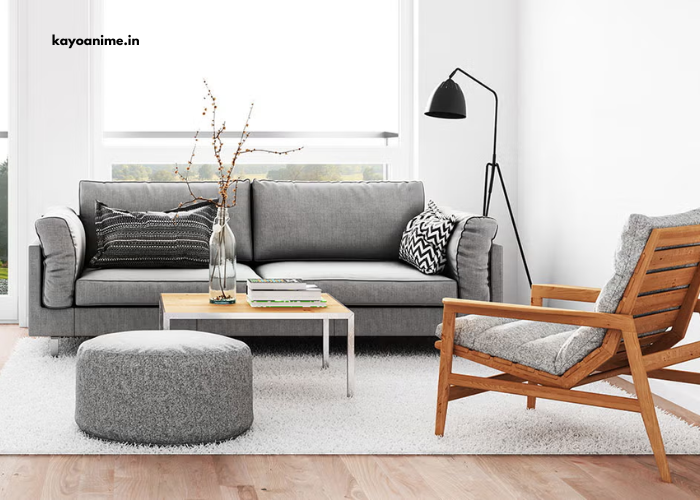Minimalism has evolved from a lifestyle choice into a global movement, influencing not only interior design but also personal philosophy, organization, and overall well-being. In a world where excess is often celebrated, minimalist living offers a refreshing alternative, promoting simplicity, intentionality, and mindfulness. If you’re looking to declutter your life and focus on what truly matters, minimalist living could be the perfect way to elevate your life.
What is Minimalist Living?
Minimalist living is about embracing simplicity by reducing the number of physical items and mental distractions that take up space in your life. It’s about choosing quality over quantity, and prioritizing experiences and values over possessions. Minimalism is not just about the number of things you own; it’s also a mindset that focuses on clarity, purpose, and intentional living.
In essence, minimalism is about eliminating the unnecessary to make space for what’s truly important to you, whether that’s relationships, personal growth, creativity, or well-being. It’s about living deliberately and with purpose, cutting through the noise of modern life.
The Benefits of Minimalist Living
Adopting a minimalist lifestyle has far-reaching benefits that go beyond just reducing physical clutter. Here’s how minimalist living can elevate your life:
1. Improved Mental Clarity
When we reduce the physical and mental clutter around us, it clears up space for more focused thoughts and better decision-making. This mental clarity leads to a sense of calm and less stress, as you’re no longer overwhelmed by things to do, buy, or organize.
2. Enhanced Productivity
Minimalism often leads to better time management and focus. By prioritizing what truly matters, you can eliminate distractions and allocate more time to important tasks. Minimalists find that by owning fewer things, they spend less time on upkeep, shopping, and organizing, allowing more time for meaningful pursuits.
3. Financial Freedom
One of the core principles of minimalist living is the avoidance of impulse buys and excessive consumerism. As you become more intentional about your purchases, you naturally spend less. This leads to greater financial freedom, as you’re no longer accumulating things that don’t add value to your life.
4. Increased Environmental Consciousness
Minimalism encourages sustainable living by promoting the idea of owning fewer, but better, things. This directly reduces waste, as you invest in quality items that last longer, avoiding the constant cycle of buying and discarding. Moreover, it encourages you to reconsider your consumption patterns, opting for more eco-friendly choices.
5. Improved Relationships
When you focus less on material possessions and more on meaningful experiences and relationships, you have the chance to develop deeper connections. Minimalism fosters quality time spent with loved ones rather than acquiring things that take up space and distract from true human connection.
6. Better Health and Well-being
Living with fewer possessions and distractions can also benefit your physical health. Minimalism encourages decluttering not just your home but also your daily routine, which can lower stress levels and promote healthier habits. The time saved from unnecessary tasks can be used for self-care, exercise, or mindfulness practices.
How to Begin Your Journey into Minimalist Living
Embracing minimalism is a gradual process, and it’s important to remember that it’s a highly personal journey. The key is to take small, manageable steps toward simplifying your life, allowing you to reap the benefits without feeling overwhelmed.
1. Declutter Your Space
The first step to minimalist living is creating a clean, uncluttered living space. Go through your possessions, and evaluate each one. Ask yourself: “Do I truly need this? Does it add value to my life?” The goal is to remove items that no longer serve a purpose or bring you joy. Start with a single room or category, such as clothing or kitchen items, and gradually work your way through your home.
H3: Practical Tips for Decluttering
- Follow the One-In, One-Out Rule: For every new item you bring into your home, commit to removing one. This prevents accumulation and helps keep your space organized.
- Set a Decluttering Timeline: Break your decluttering process into manageable tasks. Set aside 15-30 minutes each day to tackle a specific area, whether it’s a drawer, shelf, or closet.
- Donate or Sell: Consider donating or selling items that are still in good condition. This not only frees up space but also benefits others.
2. Streamline Your Wardrobe
One area where minimalism can have a significant impact is your wardrobe. Many people hold on to clothing that they never wear or that no longer aligns with their current style. A minimalist wardrobe focuses on quality, versatility, and timeless pieces that you love and wear regularly.
H3: Building a Capsule Wardrobe
- Stick to Neutral Colors: Opt for a neutral color palette that can easily be mixed and matched.
- Choose Quality Over Quantity: Invest in well-made clothing that will last longer, rather than cheap, fast-fashion items.
- Limit Special Occasion Pieces: Only keep items you wear regularly and limit special occasion or seasonal clothing.
3. Simplify Your Digital Life
Minimalist living isn’t limited to physical spaces. It also applies to your digital environment. Digital clutter, from an overstuffed inbox to too many apps on your phone, can cause unnecessary stress and distraction.
H3: Digital Decluttering Tips
- Unsubscribe from Unnecessary Emails: Reduce inbox clutter by unsubscribing from newsletters or promotional emails you no longer read.
- Delete Unused Apps: Review the apps on your phone and delete any that you no longer use. Keep only those that add value to your life.
- Organize Your Files: Create a simple, intuitive file system on your computer to organize documents, photos, and other important files.
4. Adopt Mindful Consumption Habits
A key principle of minimalism is the idea of intentional living. This extends to your consumption habits, whether it’s food, entertainment, or material possessions. Before making a purchase, pause and ask yourself if it aligns with your values or goals. Is it something you truly need, or is it an impulse buy?
H3: Tips for Mindful Consumption
- Wait 24 Hours Before Purchasing: For non-essential items, wait at least 24 hours before making a decision. This gives you time to reflect on whether the item will truly add value to your life.
- Opt for Quality Over Quantity: Rather than buying several low-quality items, invest in a few high-quality ones that will last longer and serve you better.
- Practice Gratitude: Shift your focus from acquiring more things to appreciating what you already have. This practice helps reduce the desire for unnecessary purchases.
5. Focus on Experiences, Not Possessions
One of the most powerful aspects of minimalist living is the focus on experiences rather than material possessions. By prioritizing relationships, travel, hobbies, and personal growth, you enrich your life with meaningful moments that can’t be bought or collected.
H3: Creating Memorable Experiences
- Spend Time with Loved Ones: Instead of spending money on material goods, focus on building memories with friends and family.
- Travel Mindfully: When you do travel, focus on the experience rather than accumulating souvenirs. Travel with intention, and explore destinations that resonate with your values.
- Engage in Creative Activities: Whether it’s painting, writing, or playing an instrument, engage in creative pursuits that nurture your soul and bring you joy.
Overcoming Challenges in Minimalist Living
While minimalism offers numerous benefits, it can come with its own set of challenges, especially in a world that often celebrates excess. Here are some common hurdles and how to overcome them:
1. The Fear of Missing Out (FOMO)
Living minimally can sometimes lead to a feeling of missing out on trends, experiences, or possessions. To overcome this, focus on the things that truly matter to you and let go of the pressure to keep up with societal expectations. Remember, minimalism is about aligning your life with your values, not conforming to external pressures.
2. Emotional Attachment to Possessions
It can be difficult to let go of items with sentimental value. In such cases, take a more gradual approach to decluttering. Consider keeping a few meaningful items and finding ways to preserve memories, like through photographs or digital keepsakes. The goal is to retain what brings joy without being overwhelmed by things.
3. Social Pressures
In many cultures, material success is often equated with status. Embracing minimalist living may lead to judgment or misunderstanding from others. Stay firm in your convictions and remember that minimalism is a personal choice. You are elevating your life by focusing on what is truly important to you.
Final Thoughts: Living a Life of Intentionality
Minimalism isn’t just about reducing the number of things you own; it’s about cultivating a life of intentionality, mindfulness, and purpose. By eliminating distractions and focusing on what truly matters, you open up space for greater happiness, clarity, and fulfillment.
Whether you’re looking to improve your mental clarity, reduce stress, or simply live a more sustainable life, minimalist living can be the key to elevating your life. Start small, be patient with the process, and remember that minimalism is a journey, not a destination.





